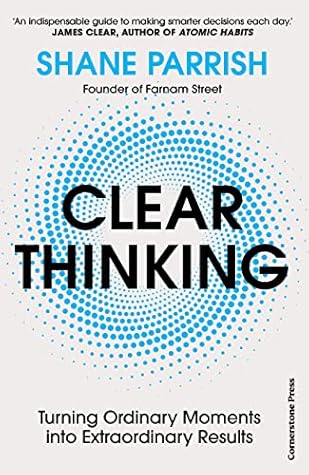More on this book
Community
Kindle Notes & Highlights
Read between
January 5, 2024 - June 11, 2025
While the rest of us are chasing victory, the best in the world know they must avoid losing before they can win. It turns out this is a surprisingly effective strategy.
Uldis Lazdiņš liked this
In order to get the results we desire, we must do two things. We must first create the space to reason in our thoughts, feelings, and actions; and second, we must deliberately use that space to think clearly.
A good position allows you to think clearly rather than be forced by circumstances into a decision. One reason the best in the world make consistently good decisions is they rarely find themselves forced into a decision by circumstances.
In the space between stimulus and response, one of two things can happen. You can consciously pause and apply reason to the situation. Or you can cede control and execute a default behavior.
So our first step in improving our outcomes is to train ourselves to identify the moments when judgment is called for in the first place, and pause to create space to think clearly.
The emotion default: we tend to respond to feelings rather than reasons and facts. The ego default: we tend to react to anything that threatens our sense of self-worth or our position in a group hierarchy. The social default: we tend to conform to the norms of our larger social group. The inertia default: we’re habit forming and comfort seeking. We tend to resist change, and to prefer ideas, processes, and environments that are familiar.
Uldis Lazdiņš liked this
Success requires shamelessness. So too does failure.
Always focus on the next move, the one that gets you closer or further from where you want to go.
the things you choose not to do often matter as much as the things you choose to do. The real test of a person is the degree to which they are willing to nonconform to do the right thing.
Champions don’t create the standards of excellence. The standards of excellence create champions.fn1
If you got some results you didn’t want, the world is telling you at least one of two things: (a) you were unlucky; (b) your ideas about how things work were wrong. If you were unlucky, trying again with the same approach should lead to a different outcome. When you repeatedly don’t get the outcomes you want, though, the world is telling you to update your understanding.
Defining the problem starts with identifying two things: (1) what you want to achieve, and (2) what obstacles stand in the way of getting it.
Most errors in judgment happen when we don’t know we’re supposed to be exercising judgment.


